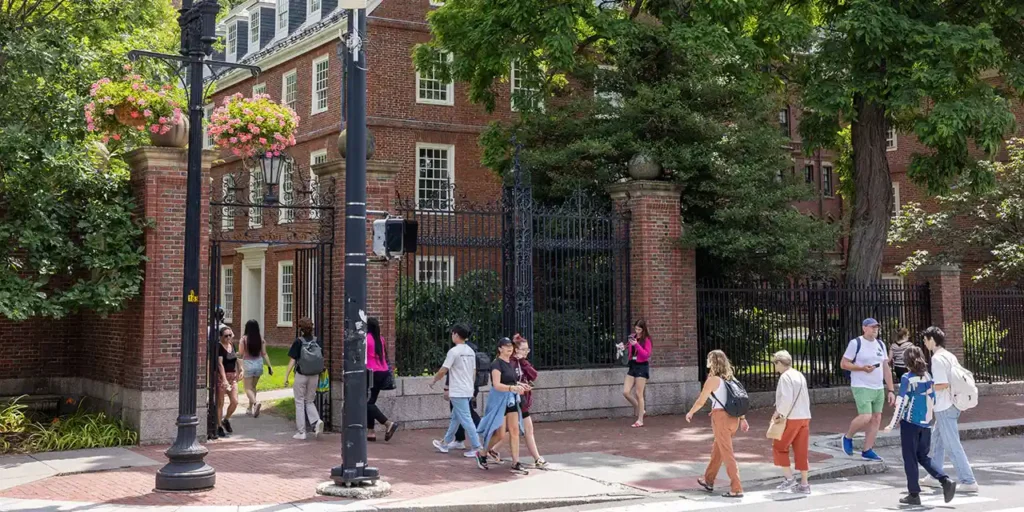Colleges look at more than just grades when they review applications. Admissions officers also check extracurricular activities, leadership, essays, letters of recommendation, standardized test scores, and demonstrated interest. They look for traits like resilience, curiosity, and initiative.
The answer to what colleges look at besides grades is both academic work and the personal qualities that shape a student.
At CollegeCommit, we guide high school students and families through the college application process with focus and care. Committees do not make decisions based only on GPA. Knowing what else matters is key. This article explains the factors that affect admissions decisions and how to prepare your child’s application with confidence.
Table of Contents
ToggleKey Takeaways
- Colleges review more than grades, giving weight to course rigor, activities, essays, and letters of recommendation.
- Sophomore and junior year grades are most important, while middle school grades are not part of admissions decisions.
- Depth in activities and honest writing in essays and letters matter more than joining many groups or using generic praise.
- Demonstrated interest, such as visiting or applying through Early Decision, can affect chances at selective schools.
- Admissions committees use a holistic process, looking at academics, character, and contributions together instead of one single factor.
What Colleges Value Most
Admissions officers give more weight to some factors than others. Three areas matter most:
-
- Strong performance in tough courses
-
- Leadership and depth in activities
-
- A personal statement with impact
This ranking helps families see where to focus during the high school career. Parents often ask what do colleges look for in applicants, and the answer is more than grades. Committees want growth, genuine interests, and readiness to add value on campus.
How Colleges Evaluate Academic Performance
What Do Colleges Look for in Grades
Colleges look at more than GPA. They ask if a student took the most challenging courses available at their school. College admission officers compare grades with course choices and school standards. High marks in tough classes show both ability and persistence.
What Grades Do Colleges Look at the Most
Sophomore and junior year grades matter most. These years show growth and steady effort. Senior year also matters to prove that a student can stay strong after applying. Freshman year counts, but is often seen as an adjustment period. These years together define a high school career.
Do Colleges Look at Middle School Grades
Middle school grades do not count in admissions. Committees focus on high school courses since they show readiness for college. Still, good habits from middle school can help a student succeed later. Colleges prefer to see growth in high school more than early results.
How Do Colleges Look at Grades
Admissions officers look at grades in context. They ask if the student used the hardest options their school offered, such as AP or honors. A record that shows growth after struggles is stronger than one with easy classes and high marks.
Course Rigor and Curriculum Choices
Beyond GPA, course rigor plays a major role in admissions decisions. AP, IB, or dual-enrollment classes demonstrate readiness for college-level work. Colleges especially value students who take on challenging courses to push themselves academically.
Officers look for a balance between rigor and success, and strong choices can offset weaknesses elsewhere in the record.
What Do Colleges Look for Beyond Grades
Extracurricular Activities, Leadership, and Depth
Extracurricular activities show how a student uses time outside class. Leadership roles show responsibility and initiative. Colleges like to see depth, not just a long list. Staying with one or two activities for years shows more than joining many with no role.
Admissions officers prefer steady growth in a few areas over scattered involvement. Whether in sports, music, or service, depth signals focus and discipline. Strong involvement is about impact, not numbers. For example, leading a robotics club for three years matters more than joining several clubs with no leadership.
To check impact, families can ask:
-
- Did my student take on more responsibility over time?
-
- Can we show clear results in the school or community?
-
- Does this activity connect with academic or personal goals?
At CollegeCommit, we help students choose activities that show colleges’ impact and align with their story. We don’t just advise – we engineer your child’s admissions edge.

What Do Colleges Look for in Essays
The personal statement lets students share their voice. Committees want essays that sound real and thoughtful. Strong essays show traits like resilience and purpose. They explain how life events shaped the student.
Essays stand out with stories, not lists. For example, writing about one big challenge and growth means more than restating achievements. Weak essays often repeat what’s already on the application.
At CollegeCommit, we guide students to keep essays focused. We ask readers to explain the main point after reading. If each gives a different answer, the essay may not be focused enough.
For families who want expert coaching, our college admission essay resources explain how to turn ideas into powerful stories that reflect authenticity.
We coach students on brainstorming, outlines, and edits. The Common App essay has a 650-word limit. We help students use that space to say something powerful. The writing is always theirs, but we support them in making it strong.
Recommendation Letters and Qualities That Stand Out
Recommendation letters show traits not seen in transcripts. Teachers and mentors highlight persistence, teamwork, and curiosity. Colleges look for letters that add context and detail.
Parents can ask recommenders to share specific examples. “Led a group project that boosted class participation” is stronger than “works hard.” Details make letters more believable.
Strong vs. weak letters differ in detail:
-
- Strong: “She launched a peer mentoring program that doubled retention in advanced math.”
-
- Weak: “He is a good student who participates in class.”
At CollegeCommit, we help students pick the right recommenders and share context so their letters show the traits admissions committees want.

Unique Talents and Personal Achievements
Talents such as music, sports, or entrepreneurship add value to an application. Admissions officers weigh these when they see how a student might enrich the campus. Unique achievements show drive and passion.
Demonstrated Interest in Colleges
Some colleges track how much interest a student shows. Actions may include campus visits, interviews, or emails. While not the most important factor, it can matter at selective schools.
Strong signals include joining virtual sessions, asking good questions, or applying Early Decision. Weak signals are mass emails or simple tours with no follow-up.
Students should keep notes about these interactions. Mentioning real reasons for interest in attending an institution in essays or interviews makes the application stronger.
Intellectual Curiosity and Passion Projects
Students who take on projects outside school stand out. Committees like to see research, art, or business ideas linked to personal interests. These projects show initiative and readiness for college-level work.

Resilience, Initiative, and Authenticity
Colleges want students who can handle hard times. Showing growth after challenges proves maturity. Taking initiative, such as starting a club or serving the community, shows proactive leadership. Authentic essays, letters, and activities reflect true interests and stand out more than polished but generic responses.
What Do Universities Look for Beyond Grades (Global Perspective)
Outside the U.S., universities may weigh national exams or subject scores more. Still, they also look at personal qualities and activities.
College Admission Requirements Explained
Standardized Test Scores (Optional but Strategic)
Test scores remain important at many schools, even with test-optional policies. High results can help, especially at the Top 20 schools. Scores can also offset weaker grades.
CollegeCommit offers tutoring and test prep to help students show their potential.
Admission Requirements Chart (Simplified)
Schools publish requirements such as GPA ranges, coursework, and tests. A simple chart helps families compare. These rules vary, so strategy – not guesswork – is key.
Parents should also review the admission forms of colleges to see how requirements differ across institutions and ensure nothing important is overlooked.
How to Get Into a Good College
Building a Coherent Admissions Narrative
Applications work best when they tell a story. Grades, activities, and essays should connect. Admissions officers look for alignment between past choices and future goals.
Balancing Academics, Activities, and Essays
A strong application is balanced. Grades are critical, but activities and essays give meaning. Students should not focus on just one area.
Parents often ask what colleges like to see on applications. The answer is steady grades, meaningful involvement, and essays that sound real.
How All These Factors Work Together
Admissions committees look at the whole picture. They weigh grades, activities, essays, and letters together. This way, they admit students who are both strong in class and active in their communities.
To answer what colleges look for in students, committees seek those who are capable, engaged, and authentic across the entire college admissions process.
Standing Out Beyond Grades
Grades matter, but they are only one piece. Strong activities, essays, and recommendation letters shape admissions decisions.
Committees want authenticity, resilience, and a student who will add value on campus. Families looking for step-by-step support can explore our college acceptance prep services to make sure every detail is addressed.
CollegeCommit offers admissions consulting, essay coaching, and test prep. Our advisors guide students through every step – from academics to admissions strategy – with care. We help ambitious students apply to the Ivy League and Top 20 universities with confidence.
Schedule your free private consultation today to learn how our advisors support students to prepare, position, and apply with purpose.


